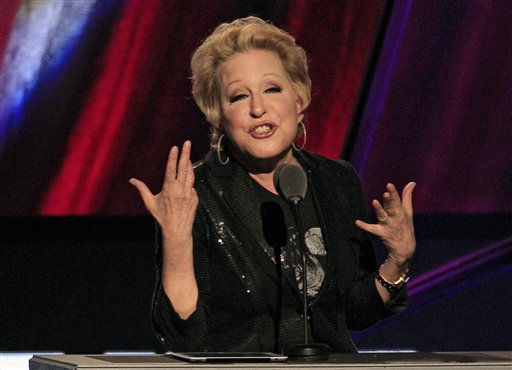Appropriation, also referred to as misappropriation, is the unauthorized use of a person’s name, photograph, likeness, voice, or endorsement, often for financial gain. Although appropriation may involve speech or communication, the First Amendment does not protect its practice.
Appropriation is related to right of publicity
Appropriation is related to and is often co-mingled with the “right of publicity.”
Some commentators differentiate them, however, on the grounds that the right of publicity applies to individuals (for example, a celebrity) with a proven commercial value to their image or identity, while appropriation pertains to everyone.
Appropriation has its roots in the law of unfair competition and has historically been applied when something that cannot be copyrighted, such as a performance, is used without authorization. The terms are often used interchangeably, however, and the Restatement (Second) of Torts (sec. 652C, comment (b) (1977)) includes only a single action for “appropriation of name or likeness,” which includes commercial and noncommercial purposes.
Right of publicity arose in the early 20th century
The concept of a right of publicity arose at the start of the twentieth century.
New York, for example, adopted the claim by statute in 1905 after the state’s highest court refused to recognize it in Roberson v. Rochester Folding Box Co. (N.Y. 1902).
The Georgia Supreme Court recognized the claim in Pavesich v. New England Life Ins. Co. (Ga. 1905).
The first court decision to use the term right of publicity was Haelan Laboratories, Inc. v. Topps Chewing Gum, Inc. (2d Cir. 1953). Professor Melville B. Nimmer promoted the concept the following year in a seminal article.
Supreme Court has upheld right of publicity
The Supreme Court upheld the constitutionality of the claim in Zacchini v. Scripps-Howard Broadcasting Co. (1977), which involved the unauthorized broadcasting of an entire “human cannonball” act.
The Second Restatement of Torts, published the year of the Zacchini decision, states that “[o]ne who appropriates to his own use or benefit the name or likeness of another is subject to liability to the other for invasion of his privacy” (sec. 652C; see also Restatement (Third) of Unfair Competition, sec. 46 (1995): “[o]ne who appropriates the commercial value of a person’s identity by using without consent the person’s name, likeness, or other indicia of identity for purposes of trade is subject to liability for [monetary and injunctive] relief ”).
The action is now recognized as a common law tort by most states, although some jurisdictions recognize it only for prominent individuals. Several jurisdictions, notably California and New York, have adopted the cause of action by statute. In a few states, the cause of action survives the death of the individual.
Court have allowed right of publicity actions for celebrities, noncelebrities
For celebrities, courts have allowed “right of publicity” actions for:
- an individual’s image, Grant v. Esquire, Inc. (S.D.N.Y. 1973);
- name, Parks v. LaFace Records (6th Cir. 2003);
- persona, White v. Samsung Electronics America, Inc. (9th Cir. 1992);
- voice, Midler v. Ford Motor Co. (9th Cir. 1988);
- a celebrity’s signature phrase, Carson v. Here’s Johnny Portable Toilets, Inc. (6th Cir. 1983);
- the persona of a fictional character with which an actor is closely identified, Allen v. Men’s World Outlet, Inc. (S.D.N.Y. 1988); and
- a race car driver’s automobile, Motschenbacher v. R.J. Reynolds Tobacco Co. (9th Cir. 1974).
For noncelebrities, courts have allowed claims for:
- use of an individual’s name, as in Haith v. Model Cities Health Corp. of Kansas City (Mo. App. 1986), and
- unique clothing, as in Cheatham v. Paisano Publ’ns., Inc. (W.D. Ky. 1995).
Plaintiffs must, however, show that their persona has some commercial value. Courts have rejected claims from noncelebrities whose personas have minimal value, as in Vassiliades v. Garfinckel’s, Brooks Bros. (D.C. App. 1985).
Appropriation claims are limited under the First Amendment
Appropriation claims are limited where the unauthorized use has First Amendment value (for example, newsworthy material, entertainment, or parody).
- In Hoffman v. Capital Cities/ABC, Inc. (9th Cir. 2001), for example, a federal appeals court held that the actor Dustin Hoffman could not recover for use of his image as the movie character Tootsie in a noncommercial speech context without showing actual malice.
- In Doe v. TCI Cablevision (Mo. 2003), a hockey player failed to recover for publication of a comic book with a character with a similar name.
- In Tyne v. Time Warner Entertainment Co., L.P. (Fla. 2005), the court found that publications, including motion pictures, that do not directly promote a product or service, are not actionable under right of publicity statutes.
- Namath v. Sports Illustrated (N.Y. App. 1975) set out that the limitations also apply to advertising undertaken in connection with a use protected by the First Amendment.
Copyright law can preempt state approproriation laws
Federal copyright law preempts state appropriation law when the work falls within the subject matter of the Copyright Act of 1976 and plaintiffs’ claims assert rights equivalent to those protected by copyright.
Thus, for example, appropriation claims are preempted in cases involving usage of a copyrighted work that incidentally, but necessarily, includes the identity of the complainant.
Compare Baltimore Orioles, Inc. v. Major League Baseball Players Association (7th Cir. 1986), cert. denied (1987) with Laws v. Sony Music Entertainment, Inc. (9th Cir. 2006), Brown v. Ames (5th Cir. 2000), and Downing v. Abercrombie and Fitch (9th Cir. 2001).
This article was originally published in 2009. Eric P. Robinson is an attorney and scholar focused on legal issues involving the media, including the internet and social media. He is currently Assistant Professor in the School of Journalism and Mass Communications at the University of South Carolina and is also “of counsel” to Fenno Law in Charleston/Mount Pleasant, South Carolina, which focuses on media and internet law.

